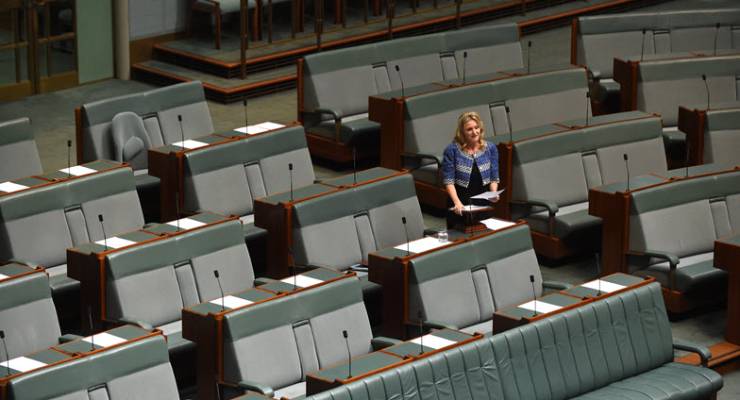
As we stagger towards the federal election, the public and media alike await the usual milestones: the Big Election Theme, the triggering catchphrase (what is 2019’s “stop the boats”?), and the candidates’ inevitable gaffes when forced to interact with “normal people”. The newest addition to these traditions is the swarm of candidates whose blunders and indiscretions will inevitably force them out of the race, barely after their signatures have dried on their approved application form.
Federal and state elections have provided stellar form for this in recent years. During last November’s Victorian election, the Greens got caught out three times. Joanna Nilson stepped down after social media posts surfaced in which she talked about shoplifting. Footscray candidate Angus McAlpine hung on til election day, but was plagued by controversy around rap lyrics he wrote and performed about rape. Dominic Phillips faced scrutiny over reports of “liking” sexist and racist Facebook pages, but was eventually stood down from campaigning due to an internal investigation concerning an allegation of sexual misconduct.
The Liberals and Labor did not escape this mess. The Libs’ Paul Mitchell resigned after texts surfaced of him calling Indian people “curries”. He was followed by Neelam Rai, who had promoted an unregistered charity. And Labor candidate Peter Lockwood stepped down due to health concerns, shortly after 2015 allegations of violence surfaced against a Knox City councillor colleague.
This all provokes the question: just what are parties doing to make sure that they’re picking suitable candidates?
A secretive process
Dr Marcus Phips, lecturer in political marketing at the University of Melbourne, says the boom in social media over the past decade has made it easier than ever for skeletons to be found inside closets. Parties therefore need to be thorough when approving candidates.
“Social media’s been around for about 10 years, so lots of candidates — and especially the younger ones — have quite a digital footprint,” he says. “It’s a lot easier for opposition parties to find something they can possibly use to attack other candidates with.”
Parties are tight-lipped about how they pick candidates and their vetting process. While there are straight-forward details available about nominating for pre-selection, the pre-selection process itself is clouded in secrecy and inconsistent rules. Between parachuted “celebrity candidates” and “captain’s picks”, members with existing powerful connections within the party, business or union world receive an unnatural advantage.
Parties also refuse to disclose their vetting process to ensure that candidates — however they are selected — don’t have any obvious strikes that could cause headaches during the campaign. We don’t know if they check financial, criminal or qualification records, or even if they do a simple social media check.
The times they are a changin’
Major parties have the advantage over minor- and micro-parties due to the simple fact that they have more money and resources to properly investigate candidates — even though that hasn’t protected them from multiple scandalous candidates. One Nation appears to have a special affinity for picking risky candidates, with eight of its candidates either stepping down or being dumped during the 2017 Queensland election alone. This included Mark Ellis, who resigned after he allegedly threatened to kill an employee and Shan Ju Lin, who wrote homophobic posts on Facebook.
Political expert Dr Paul Rodan, from Swinburne University, warned of this lack of diligence back in 2013: “If a nutter emerges, these parties can only hope that it occurs before nominations close, allowing for withdrawal and replacement. And how does a candidate follow the party line when much of the detail is being made up on the run?” But it’s a warning that has clearly been ignored.
As part of strengthening their respective vetting processes, parties need to reassess what is socially and politically acceptable, Phips adds. “Parties may know about something and deem it not a big issue, but a lot of candidates are realising that things they said or did in the past — which were once seen as quite bland — are coming back to haunt them because social norms have changed quite a bit.”
Just over one week into the federal campaign and three candidates have already fallen on their swords — mostly from concerns about their possible breach of the infamous section 44 rule on dual citizenship. Star Labor recruit Melissa Parke, for Julie Bishop’s vacated seat of Curtin, stepped down after making comments about Israel.
And we still have four weeks to go, which is plenty of time for the political body count to add up.








I confess I am mystified why Melissa Parke thought it necessary to withdraw on the basis that she has said in the past the bleeding obvious – that Israel’s facilitation of the colonisation of Palestinian territory by ‘settlers’ is wrong. What is the sin she has committed? Failing to support the fallacy that support for Israel’s sovereignty entails excusing it if all its crimes?
Well said, BA…I too am mystified about Melissa Parkes’s decision, or was it the ALP who decided they didn’t want another area of contention opening up during the election campaign?
I see that a large number of Jewish organisations in the USA have petitioned Trump in an attempt to stop Netanyahu further destabilising the West Bank by annexing Jewish settlements there.
And, of course, that would see the end of the ‘two-state solution’, and yet more trouble caused by Israel!
Me three. Simply demonstrates the success of the Israel lobby in this country, when we are supposedly putting in place firm laws against foreign nations interfering in our political processes. It seems Israel is not as foreign as the usual suspects.
Well it is apparently a cause for celebration, S44 notwithstanding, when an Australian born person goes to fight in a foreign army for two years and has an eternal right of return. This does not include Palestinians.
Gladys Liu, Liberal candidate for Chisholm must be the next most likely candidate to self immolate. After decrying as “fake news” claims she had made claims disparaging of the LGTBQI community, video evidence of her doing just that has emerged into the public gaze.